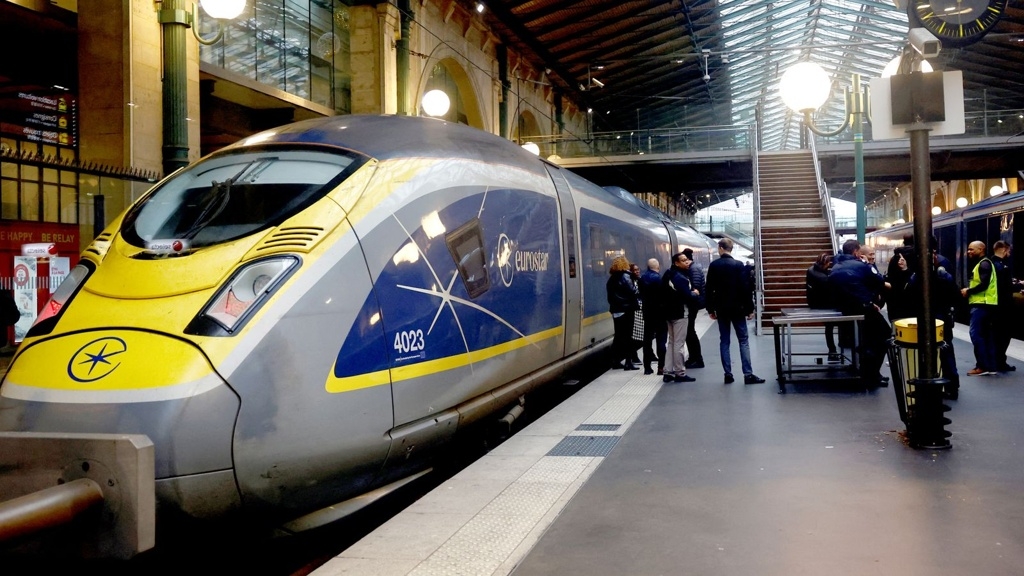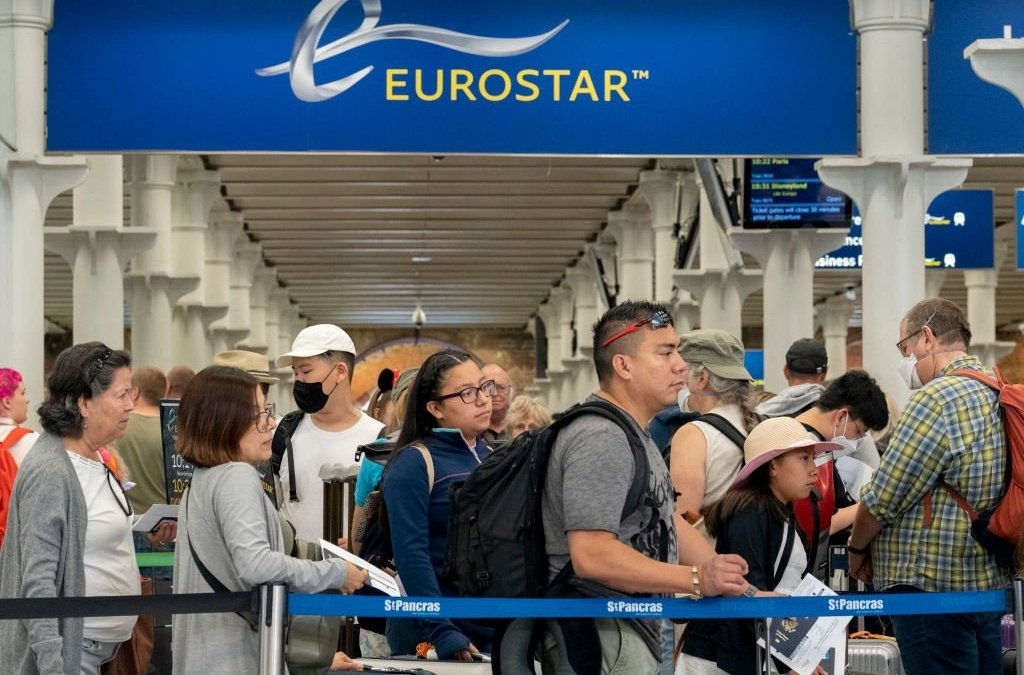WWII Bomb Discovery Halts Eurostar Trains in Paris
A WWII bomb discovery near Paris disrupted Eurostar trains, highlighting the ongoing impact of history on modern travel and public safety.

Key Points
- The discovery of an unexploded WWII bomb near Paris led to the suspension of Eurostar
train services, underscoring the ongoing implications of historical remnants.
- Authorities acted swiftly to ensure public safety, demonstrating effective communication during travel disruptions.
- This incident highlights the need for cities to balance modern infrastructure development with the challenges posed by their historical legacies.
Travelers heading to and from Paris
recently experienced significant interruptions due to an unexpected discovery on the tracks—an unexploded
bomb. This incident highlights not only the remnants of history that continue to affect modern-day logistics but also the rigorous safety measures authorities must implement to ensure public safety.

A Historical Context
The unexpected finding of such explosive devices in European cities is not uncommon. Since the end of World War II, Europe has grappled with unexploded ordnance (UXO) that can lie dormant for decades. The bomb discovered near Paris’s Saint-Denis suburb serves as a stark reminder of the war’s lingering impact. Authorities often find these bombs during railway maintenance and construction works, showcasing the delicate balance between progressing with modern infrastructure while acknowledging the past.
The Incident Unfolds
This particular bomb was found “in the middle of the tracks” during overnight works, prompting French police to swiftly close down all traffic in and out of the Gare du Nord station. Eurostar services, which connect travelers from
to Paris, were not spared as the authorities took calculated measures to ensure safety. On the morning of the incident, multiple trains were canceled, stranding passengers and creating a ripple effect on travel plans.

Ensuring Public Safety
The swift action taken by the authorities demonstrates their commitment to public safety, even amidst the disruptions caused. Effective communication from Eurostar and local law enforcement was crucial for keeping the public informed about the situation. Updates about train cancellations were posted timely on Eurostar's official website, allowing travelers to make informed decisions about their journeys. This incident stresses the importance of preparedness and communication during unforeseen events.
Impact on Travelers
For many, the cancellation of trains means more than just a delay; it reverberates through a tapestry of travel plans, impacting work commitments, leisure activities, and personal arrangements. Travelers faced the compounded stress of uncertain journey timelines while navigating alternative transportation options amid the chaos. The situation arises questions regarding resilience in the face of unexpected disruptions.
Learning from the Past
In a world where the impacts of historical events like World War II still manifest, cities and nations are continually learning how to manage such legacy challenges. Regular inspections and maintenance of urban sites not only promote safety but are also essential for honoring historical narratives. Governments and organizations are tasked with futuristic planning while keeping the past in perspective. There is a strong argument that our historical artifacts, like these bombs, should be treated with the utmost care, ensuring they are dealt with safely and respectfully.
A Glimpse Towards the Future
While this incident may have momentarily disrupted travel, it serves as a significant reminder of the importance of infrastructure diligence. As future technologies in transport and urban development advance, retrofitting historical sites to incorporate modern safety standards is imperative. This intersection of history and modernity provides an excellent opportunity for cities to reflect on how they preserve their past while crafting future narratives for generations to come.
In sum, the recent suspension of Eurostar trains due to the discovery of a WWII bomb exemplifies the unpredictable nature of travel and public safety in the contemporary era. It also underlines the essential role of effective communication and preparedness in navigating such incidents. As we advance into a future that must accommodate both the past and present, the lessons learned from events like this will undoubtedly shape travel and safety protocols to better protect communities worldwide.